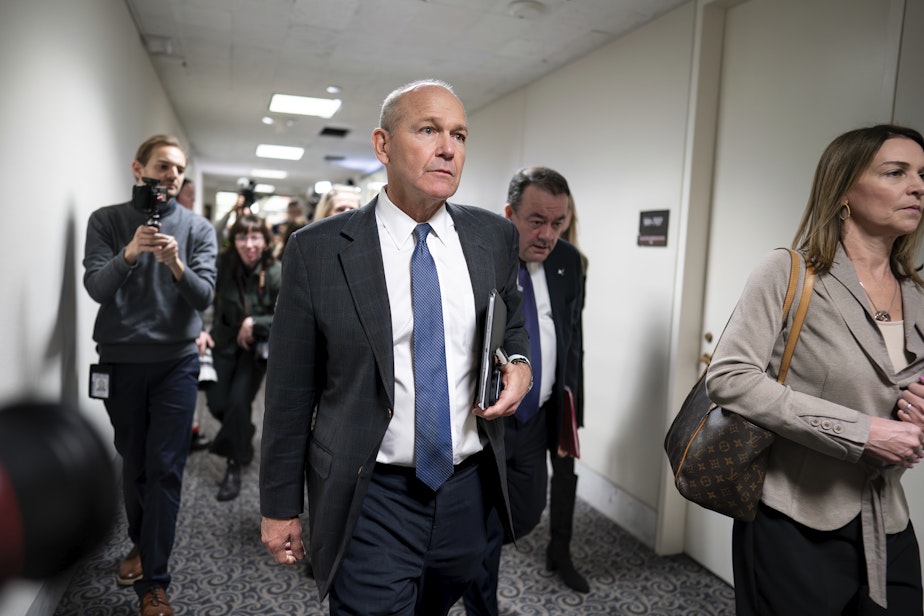Boeing takes responsibility for 737 Max 9 failure: 'We caused the problem'

During a call with investors Wednesday, Boeing CEO David Calhoun didn't focus on financials, and instead took responsibility for a recent in-flight airplane malfunction.
“Whatever conclusions are reached, Boeing is accountable for what happened ... we caused the problem, and we understand that,” Calhoun said, speaking from the Renton factory that manufactures the 737 Max 9 aircraft, the subject of regulatory scrutiny.
The Federal Aviation Administration is investigating production lines at the Renton facility after a Max 9 that it serviced lost a panel of fuselage in the air. Similar Max 9 jets were grounded for weeks following the incident, though cleared planes returned to service over the past few days.
RELATED: Boeing's quality control draws criticism as a whistleblower alleges lapses at factory
RELATED: Before a door plug flew off a Boeing plane, an advisory light came on 3 times
The incident raised questions about whether Boeing’s leadership prioritized profits over safety in recent years. Calhoun attempted to ease those concerns during the company’s fourth quarter earnings report. Rather than providing a full-year financial forecast, Calhoun focused on the Max 9 investigation and steps Boeing is taking to improve quality control.
Sponsored
Boeing’s fourth-quarter revenue was up 10% year-over-year and the company reported a narrower loss than expected, though those results don’t reflect the current crisis Boeing is navigating. The quarter closed before the Max 9 blowout. Still, the report appeared to give investors confidence, sending Boeing share price up by about 6.4%.
“I don't think that it's game over for Boeing,” Nicolas Owens, a Morningstar analyst who focuses on the long-term viability of aerospace and defense companies, told KUOW.
RELATED: Humor from horror: Alaska Airlines takes jokes for Boeing blunder
Owens said airlines place orders for jets years, if not decades, in advance and it’s not simple to take their business to a competitor. Boeing was already losing ground to rival Airbus before the Max 9 incident, but the European airplane manufacturer can only make so many jets at a time.
“It's partly due to this kind of duopoly. There aren’t many options, but it also has to do with the logistics of managing a fleet,” Owens said.
Sponsored
Both Airbus and Boeing benefit from airlines' constant need to upgrade their fleets, according to Owens. And those orders need to be placed well in advance.
"Let's say you were on the order book to get your plane this summer or this spring, but now you're changing your mind. You want to buy an Airbus," Owens said. "The Airbus order book is full through 2030, so it's not just like you can walk across the aisle and buy a different box of cereal."
At the end of last year, Boeing was producing 38 Max jets per month, according to Wednesday’s report. This year, the company had hoped to ramp up production of the aircraft, which are assembled in Seattle-area plants. But the FAA said last week it won’t let Boeing increase production until regulators are confident Boeing’s quality control issues are rectified.




